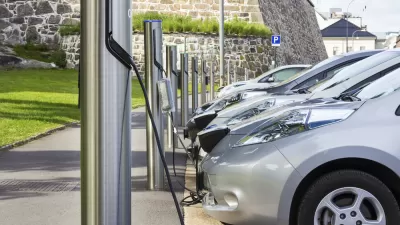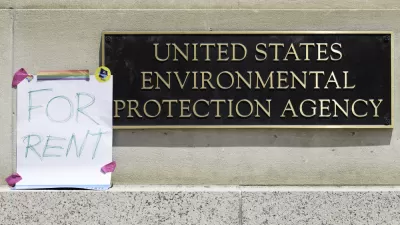The Biden administration and effects of time will erase some of the consequences of the Trump administration's methodical dismantling of the nation's environmental regulation. But climate change will be around longer than any of it.

"[T]he damage done by the greenhouse gas pollution unleashed by President Trump’s rollbacks may prove to be one of the most profound legacies of his single term," according to an article by Carol Davenport.
President-elect is likely to spend much of the next four years undoing the sweeping environmental regulation rollbacks implement during the Trump administration, but not before a significant amount of emissions, pollution, and irreversible marks are left on the country's public lands.
The legacy of those changes will outlive the policies, but on varying timelines, depending on the kind of pollution in question," according to Davenport.
Pollutants like industrial soot and chemicals can have lasting health effects, especially in minority communities where they are often concentrated. But air quality and water clarity can be restored once emissions are put back under control.
That is not true for the global climate. Greenhouse pollution accumulates in the atmosphere, so the heat-trapping gases emitted as a result of loosened regulations will remain for decades, regardless of changes in policy.
A study released in September quantified the amount of emissions enabled by the Trump administration's anti-regulatory actions. In total, the Trump administration's environmental rollbacks will emit an additional 1.8 billion metric tons of climate emissions equivalent to carbon dioxide by 2035.
But as Davenport points out, these are emissions are coming at a critical movement.
"Over the past four years, the global level of greenhouse gases in the atmosphere crossed a long-feared threshold of atmospheric concentration. Now, many of the most damaging effects of climate change, including rising sea levels, deadlier storms, and more devastating heat, droughts and wildfires, are irreversible."
FULL STORY: What Will Trump’s Most Profound Legacy Be? Possibly Climate Damage

Planetizen Federal Action Tracker
A weekly monitor of how Trump’s orders and actions are impacting planners and planning in America.

Maui's Vacation Rental Debate Turns Ugly
Verbal attacks, misinformation campaigns and fistfights plague a high-stakes debate to convert thousands of vacation rentals into long-term housing.

San Francisco Suspends Traffic Calming Amidst Record Deaths
Citing “a challenging fiscal landscape,” the city will cease the program on the heels of 42 traffic deaths, including 24 pedestrians.

Amtrak Rolls Out New Orleans to Alabama “Mardi Gras” Train
The new service will operate morning and evening departures between Mobile and New Orleans.

The Subversive Car-Free Guide to Trump's Great American Road Trip
Car-free ways to access Chicagoland’s best tourist attractions.

San Antonio and Austin are Fusing Into one Massive Megaregion
The region spanning the two central Texas cities is growing fast, posing challenges for local infrastructure and water supplies.
Urban Design for Planners 1: Software Tools
This six-course series explores essential urban design concepts using open source software and equips planners with the tools they need to participate fully in the urban design process.
Planning for Universal Design
Learn the tools for implementing Universal Design in planning regulations.
Heyer Gruel & Associates PA
JM Goldson LLC
Custer County Colorado
City of Camden Redevelopment Agency
City of Astoria
Transportation Research & Education Center (TREC) at Portland State University
Jefferson Parish Government
Camden Redevelopment Agency
City of Claremont





























